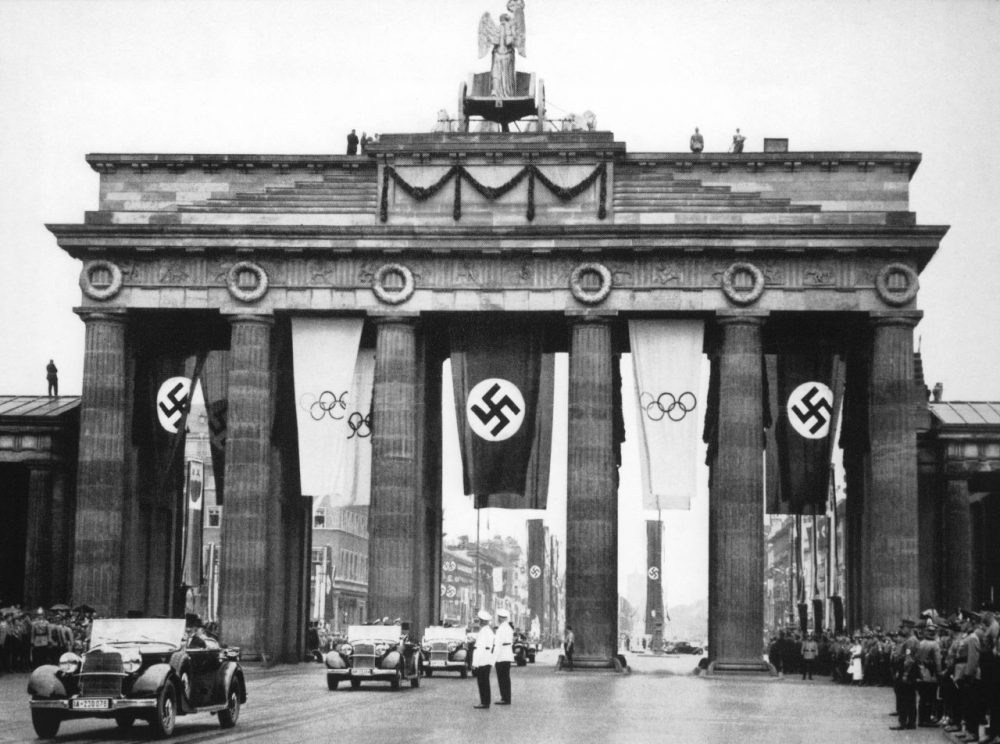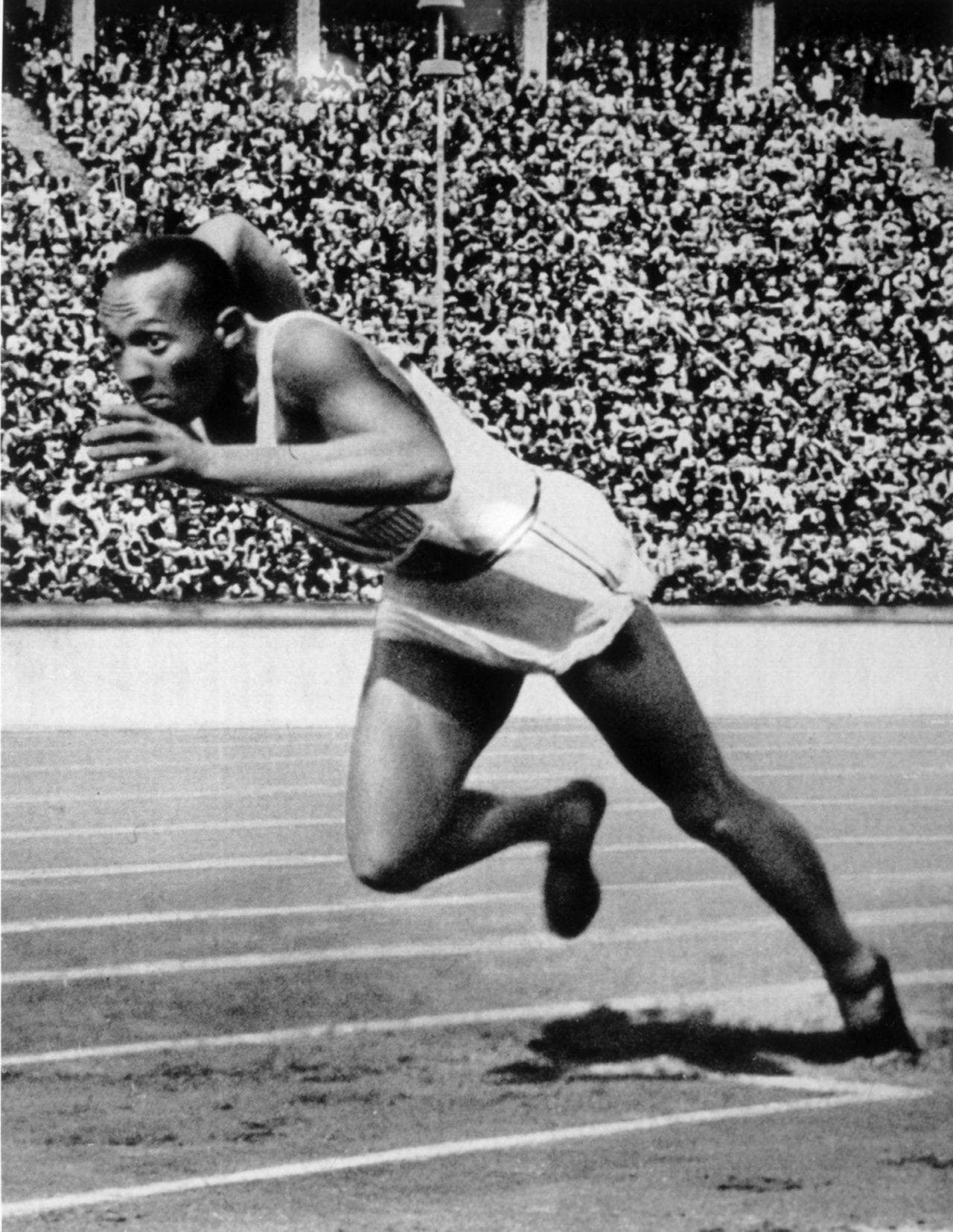Advertisement
Nazis Pioneered Broadcasting... And Made Jesse Owens A Star

University of Maine professor Michael Socolow suggests that sports broadcasters today owe a nod to an otherwise dark chapter in world history.
"Global sports broadcasting, as we understand it today, was really pioneered by the Nazi regime at the Berlin Olympics in 1936," Socolow says.
Yes, it’s embarrassing, but it’s also history.
Michael Socolow
The Berlin Olympics were the first to be televised…sort of. Spectators could watch from special viewing rooms around Berlin.
"The television in Berlin was mechanical, it was not electronic, so it wasn't the TV as we understand it today," Socolow says. "The quality was very bad. I believe in total maybe two or three events came through clearly."
Okay, so television wasn't really the German regime's innovation. Radio was.
"They built all kinds of new, innovative technologies that allowed for global short-wave relay. They subsidized the world's broadcasters to come to Berlin, and they basically decided that the Olympics were going to be the roll-out of the finest radio broadcasting possible.
"The world's best microphones were unveiled for the Berlin 1936 Olympics, which really created wonderful fidelity and sound. It was the first time that somebody in Sydney, Australia, somebody in Rio de Janiero, somebody in London and somebody in Tokyo could all hear the exact same event with terrific fidelity at the exact same time.
"In 1932, the Los Angeles Olympic committee did not allow this kind of live, global broadcasting. They were afraid of hurting 'the gate,' but in Berlin they prioritized propaganda over profits. And so they really wanted to make the world listen in to Germany. The audience was gigantic, it was 300 million people at least, so it was by far the biggest audience ever gathered to participate in anything live. It created this kind of ephemeral, electric celebrity that we associate with the Olympic Games today."
The biggest of those celebrities, you might have heard of him, his name was Jesse Owens. The new Hollywood movie out this week about Owens and the Berlin Olympics is called "Race." The New York Times calls it "studiously uplifting."
Advertisement
"Jesse Owens is truly a global phenomenon, and that's because of radio," Socolow says. "Millions of people listened in on his athletic feats. Even the Nazi broadcasters, who owed their job to their political allegiances — let's be clear here — were wowed by Owens, and there was this kind of respect that happens after he starts winning these gold medals that wasn't there before."

Owens also sat down for one-on-one interviews with German radio hosts.
"The German people loved hearing from Jesse Owens about what he thought of Germany," Socolow says.
And the German people even loved watching Jesse Owens win those four gold medals.
"The crowds in the Olympic stadium, began chanting, 'O-vens, O-vens, O-vens' like that," Socolow says.
If you haven't heard much about the Nazi contribution to sports broadcasting, Socolow isn't surprised. He's got a new book coming out this fall called "Six Minutes in Berlin: Broadcast Spectacle and Rowing Gold at the Nazi Olympics," and in it he talks about how the International Olympic Committee has shied away from giving credit for the innovations introduced at those 1936 Games.
"I think the International Olympic Committee needs to be more honest about its own history," Socolow says. "And especially something like broadcasting and world-wide broadcasting — that entire conception was pioneered by those Nazi engineers, by the German engineers. Yes, it's embarrassing, but it's also history."
This segment aired on February 20, 2016.

